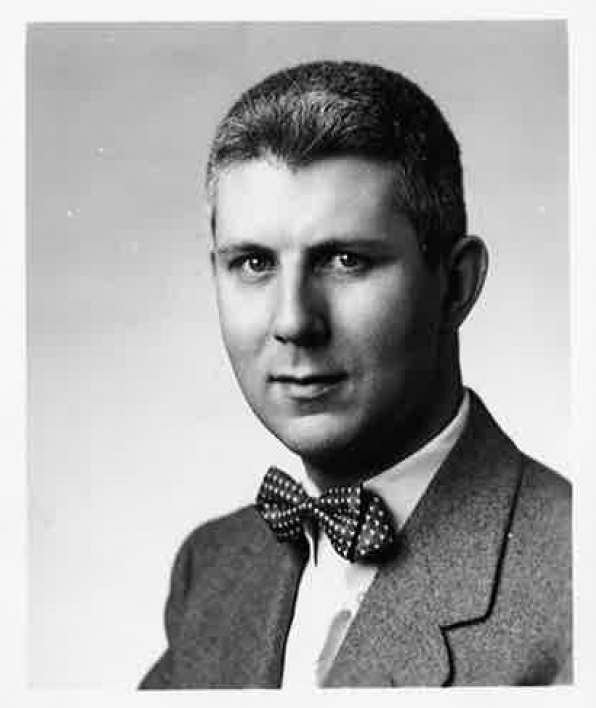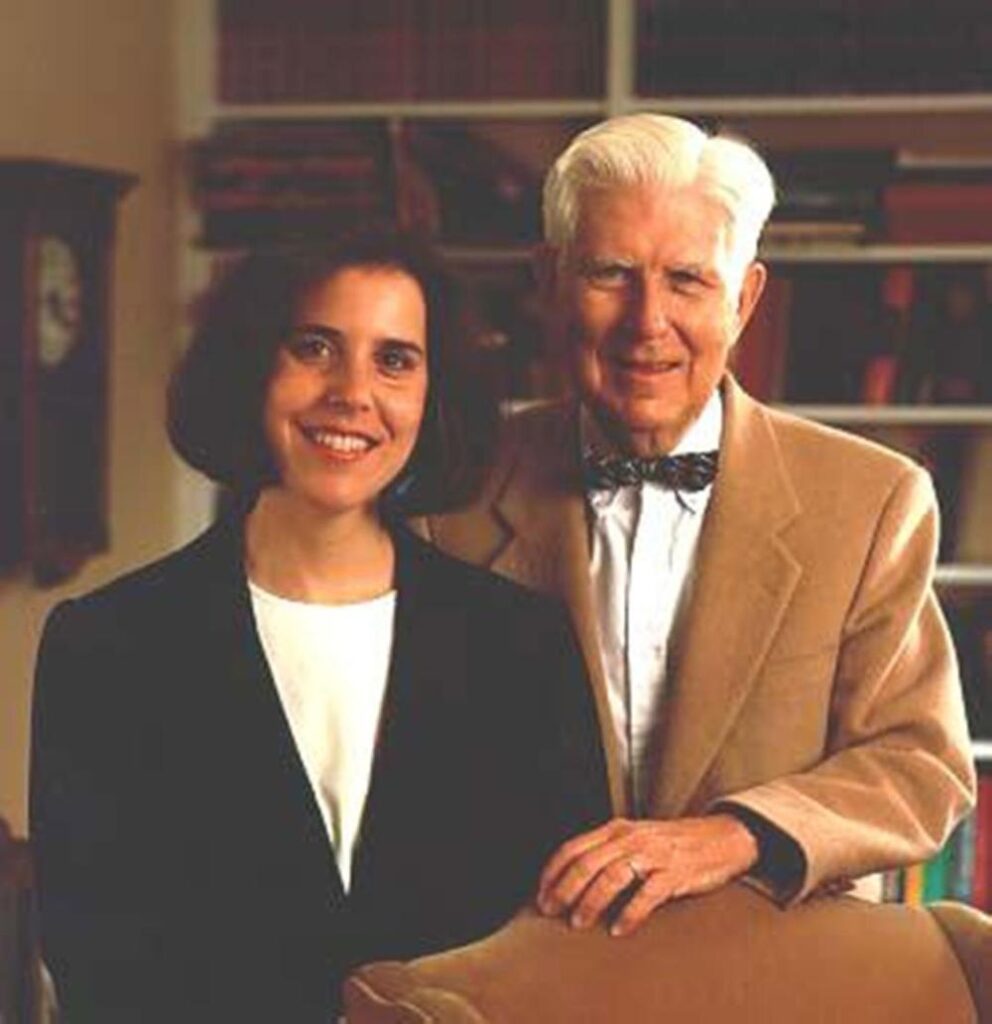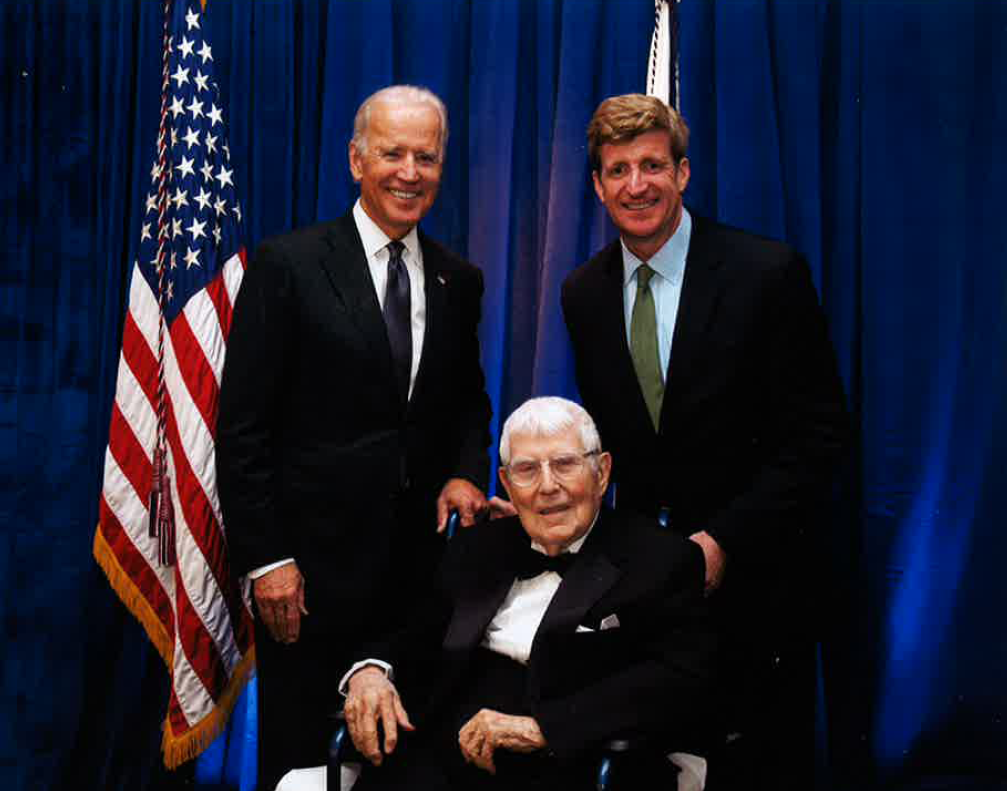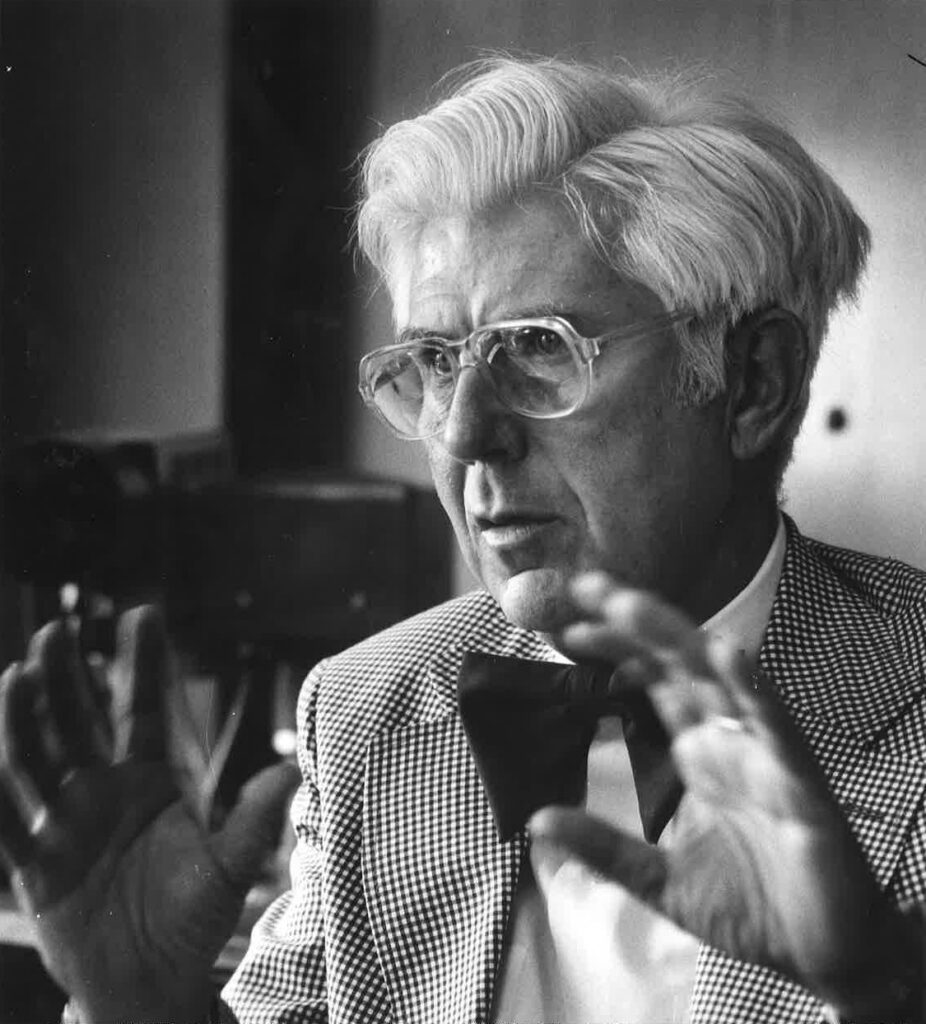A Life Well-Lived
Dr. Aaron T. Beck is globally recognized as the father of Cognitive Behavior Therapy (CBT) and one of the world’s leading researchers in psychopathology. He is credited with shaping the field of mental health, and The American Psychologist has called him “one of the five most influential psychotherapists of all time.” His contributions to the field of mental health and the tangible impact he had on the lives of so many people are astonishing. A prolific theorist, scientist, researcher, and writer, he authored or co-authored 25 books and published over 600 articles in his lifetime. He was an Emeritus Professor of Psychiatry at the University of Pennsylvania, where he worked on developing and testing his theories for almost 70 years. He also served as President Emeritus of the Beck Institute, where he inspired a generation of CBT practitioners and trainees with his wisdom, humor, and grace.
- Early Life and Career
- Development of Cognitive Behavior Therapy
- Expanding the Applications of CBT
- Founding of Beck Institute
- Development of Recovery-Oriented Cognitive Therapy
- Publications
- Family and Personal Life
- In Memoriam
- Aaron T. Beck Day
Early Life and Career

Aaron Temkin Beck was born on July 18th, 1921, in Providence, Rhode Island. He graduated from Brown University in 1942 and Yale Medical School in 1946. He then served as a fellow in psychiatry at the Austin Riggs Center in Stockbridge, MA, and later as Assistant Chief of the Department of Neuropsychiatry at the Valley Forge Army Hospital in Valley Forge, Pa., before taking up a teaching position at the University of Pennsylvania. As a young psychiatrist, Dr. Beck endorsed the dominant psychotherapeutic modality at the time, psychoanalysis, and even underwent analysis himself. He came to believe that in order for the medical community to take psychoanalysis seriously, it must be validated by research. He subsequently began conducting research into the psychoanalytic construct of depression.
Development of Cognitive Behavior Therapy
Although he expected his research into the psychoanalytic construct of depression to validate the tenets of psychoanalysis, Dr. Beck was surprised when his initial studies with depressed patients seemed to refute its underlying theories. His work with depressed patients led him to develop a new theory of depression, one focused on underlying negative beliefs associated with loss and failure, rather than the psychoanalytic theory that depression is the result of hostility turned toward the self and that depressed patients have an innate need to suffer. Dr. Beck’s patients expressed spontaneous, negative thoughts, which he eventually termed “automatic thoughts.” Adopting a collaborative role with his patients, Dr. Beck helped them evaluate the validity and utility of their automatic thoughts and cognitive distortions. He found that his patients’ thoughts about a situation influenced their reactions—more so than the situation itself, a construct he termed the “cognitive model.” He helped his patients change the way they thought about situations and engage in more adaptive behaviors, which helped them feel better. He also worked with them to address underlying maladaptive beliefs about themselves, others, the world, and the future. He called his new therapy “Cognitive Therapy,” which was later termed Cognitive Behavior Therapy, or CBT.
The results of the first major clinical trial comparing CBT to antidepressant medication were published in 1977, showing CBT to be the first talk therapy to be as effective as medication for the treatment of depression and twice as effective in preventing relapse. After a second clinical trial in the UK replicated the results, Cognitive Behavior Therapy received international recognition and interest. Since then, over 2,000 studies have found CBT to be an effective treatment for many mental health challenges and medical problems with psychological components.
Expanding the Applications of CBT
Dr. Aaron T. Beck began to research and apply CBT to other disorders, making clinical observations, identifying maladaptive beliefs associated with the disorders, and developing treatment plans to target them. He developed instruments including the Beck Depression Inventory (BDI), Beck Anxiety Inventory (BAI), and Beck Hopelessness Scale (BHS) to measure symptoms of psychopathology and evaluate the efficacy of treatment. CBT has been successfully applied to anxiety disorders, substance use, personality disorders, eating disorders, psychosis, and other psychiatric diagnoses. In addition, it has been adapted for use with couples, families, children, adolescents, adults, and older adults in a variety of settings, including hospitals, outpatient clinics, residential placements, schools, and prisons. Researchers have since found that patients with medical conditions can benefit from CBT, both in terms of symptom reduction and the promotion of healthy behaviors.
Read more about the conditions CBT can treat.
Founding of Beck Institute

In the 1990s, interest in CBT was growing around the world. However, despite its demonstrated efficacy for a wide range of problems, Dr. Aaron T. Beck recognized that there were not enough well-trained cognitive therapists to meet the growing need. In 1994, Dr. Beck co-founded the Beck Institute for Cognitive Behavior Therapy with his daughter, Dr. Judith S. Beck, focusing on training, research, resources, and clinical care in CBT. The nonprofit Beck Institute has trained over 28,000 health and mental health professionals in 130 countries, including clinicians, students, educators, and researchers.
Development of Recovery-Oriented Cognitive Therapy
Dr. Aaron T. Beck’s most recent research focused on the development of Recovery-Oriented Cognitive Therapy (CT-R), a new psychotherapeutic modality based on the cognitive model that provides concrete, actionable steps to promote recovery and resilience. CT-R was originally developed to treat individuals diagnosed with schizophrenia, but has been adapted by Dr. Beck’s team at the Beck Institute Center for CT-R to support individuals struggling with extensive behavioral, social, and physical health challenges. CT-R is collaborative and person-centered, focusing on developing and strengthening positive beliefs of purpose, hope, efficacy, empowerment, and belonging.
Instead of focusing on the troubling symptoms individuals experiences, the therapist works with them to develop meaningful aspirations, identify their values, and take steps in pursuit of their goals. Dr. Beck and his team found that when they emphasized patients’ strengths and gave them opportunities to connect with others and engage in activities in which they found purpose, they were able to be the best versions of themselves. Dr. Beck’s team of researchers found ways to operationalize recovery principles — connection, trust, hope, purpose, and empowerment. This approach has resulted in the reduction or elimination of controlling interventions, such as seclusion, restraint, and even medication and hospital stays. Practitioners and researchers are now applying the underlying principles of CT-R to the treatment of depression, anxiety, substance use, self-injury, aggression, and more. Dr. Beck often stated that he was more passionate about his work in CT-R than anything else he had done in his career. He viewed CT-R as not only pivotal to the treatment of severe mental health conditions, but to the field of mental health in general.
Publications
Dr. Aaron T. Beck authored or co-authored 25 books, 157 book chapters, and over 600 scientific articles. His first article about Cognitive Therapy, titled “Thinking and Depression” was published in 1963. Since that time, he has co-authored articles and books for professionals about applications of Cognitive Therapy ranging from depression and anxiety to substance use, schizophrenia, and suicidality. He also published two books for lay readers: “Love is Never Enough” and “Prisoners of Hate” that explain the application of CBT to relationships and to conflict, respectively.
Awards and Recognitions

During his lifetime, Dr. Aaron T. Beck received numerous awards, including the Albert Lasker Award for Clinical Medical Research and the Gustave O. Lienhard Award from the Institute of Medicine for “outstanding national achievement in improving personal health care services in the United States.” He was the first recipient of the Kennedy Community Health Award from The Kennedy Forum “as one of the most influential people in community mental health.” Other notable awards include the Sarnat Award, the Prince Mahidol Award in Medicine, and the Grawemeyer Award for Psychology.
“The stronger person is not the one making the most noise but the one who can quietly direct the conversation toward defining and solving problems.”
Family and Personal Life
Dr. Aaron T. Beck will be remembered as a cherished mentor, a prolific reader, and a lifelong learner who was intently curious about a variety of subjects from the range of natural and social sciences to law, politics, sports, and pop culture. Dr. Beck was fervently interested in the lives of his family and friends, and he kept in regular touch with hundreds of former colleagues, offering ongoing mentorship and friendship. As he aged, he focused not on what he had lost, but on what he still had and what he could still do. His positive attitude was an inspiration to all who met him.
In Memoriam

Dr. Aaron T. Beck studied evidence-based psychological therapy right up until his passing on November 1, 2021, at the age of 100. He remained an Emeritus Professor at the University of Pennsylvania and President Emeritus of the Beck Institute until his death. He leaves behind his wife of 71 years, the Honorable Phyllis W. Beck (ret.), four children, Roy, Judith, Daniel, and Alice, ten grandchildren, and ten great-grandchildren. He is dearly missed by many.
Aaron T. Beck Day
Each year on July 18, Beck Institute invites people around the world to celebrate the birthday of its founder, Dr. Aaron T. Beck.